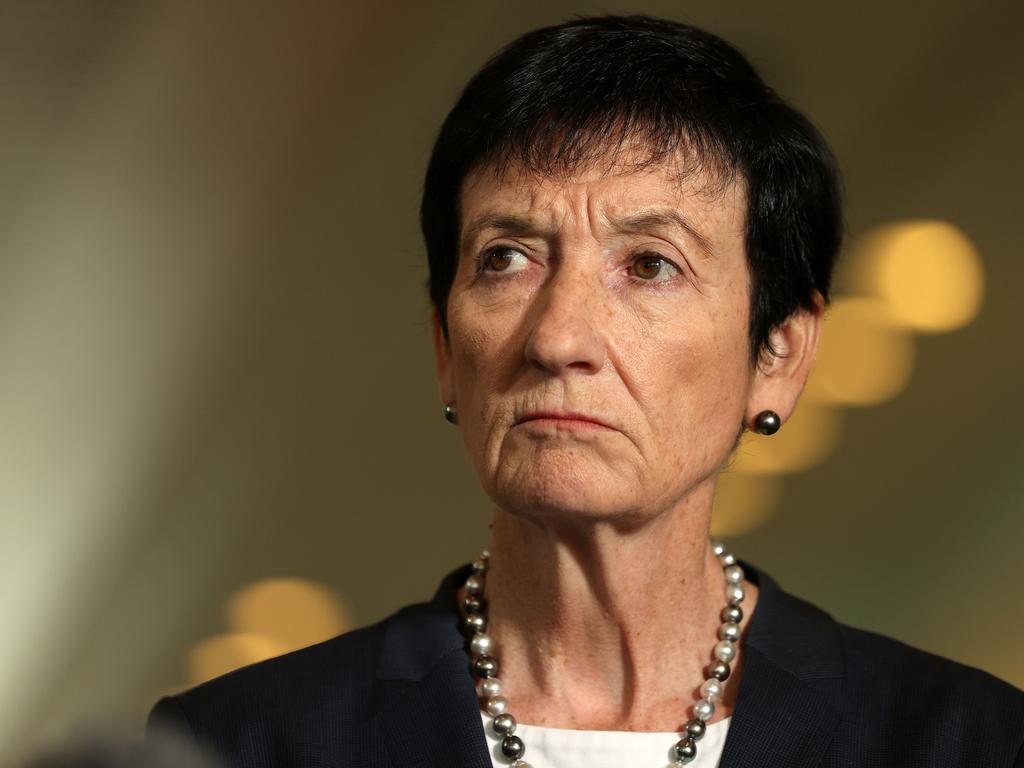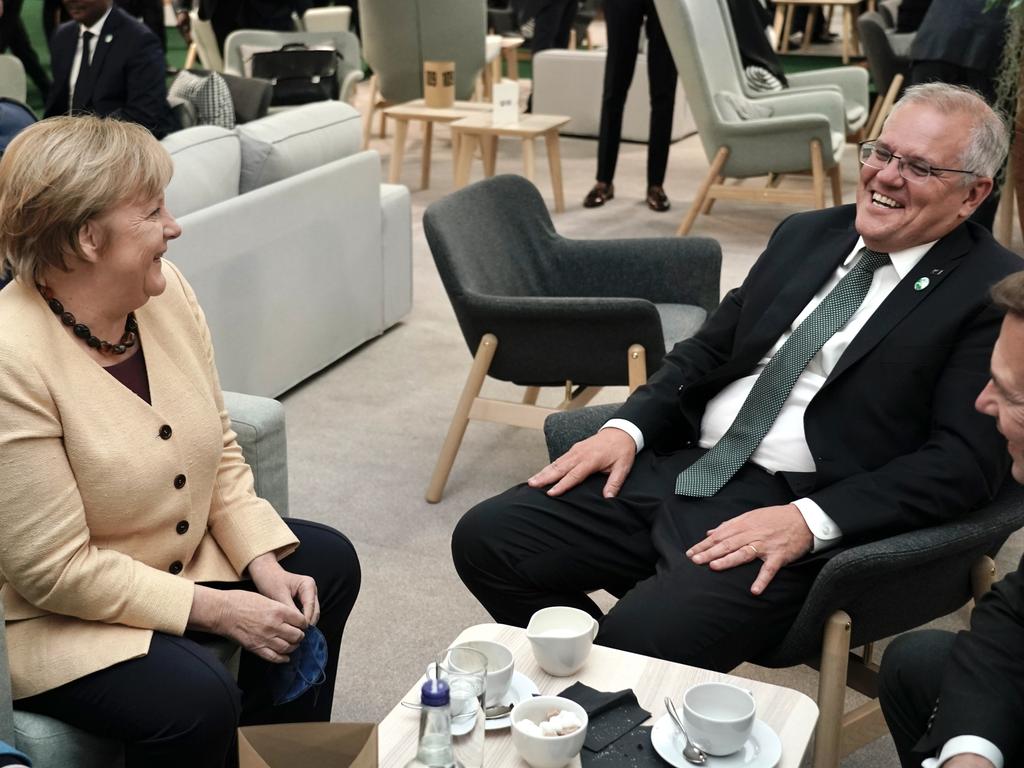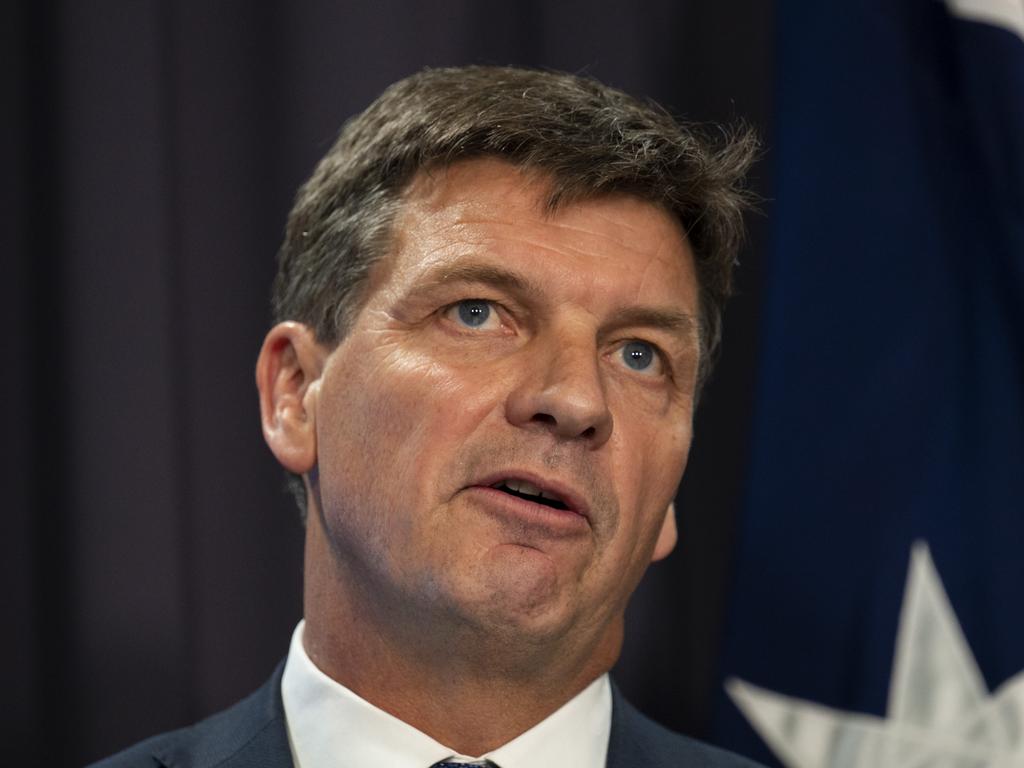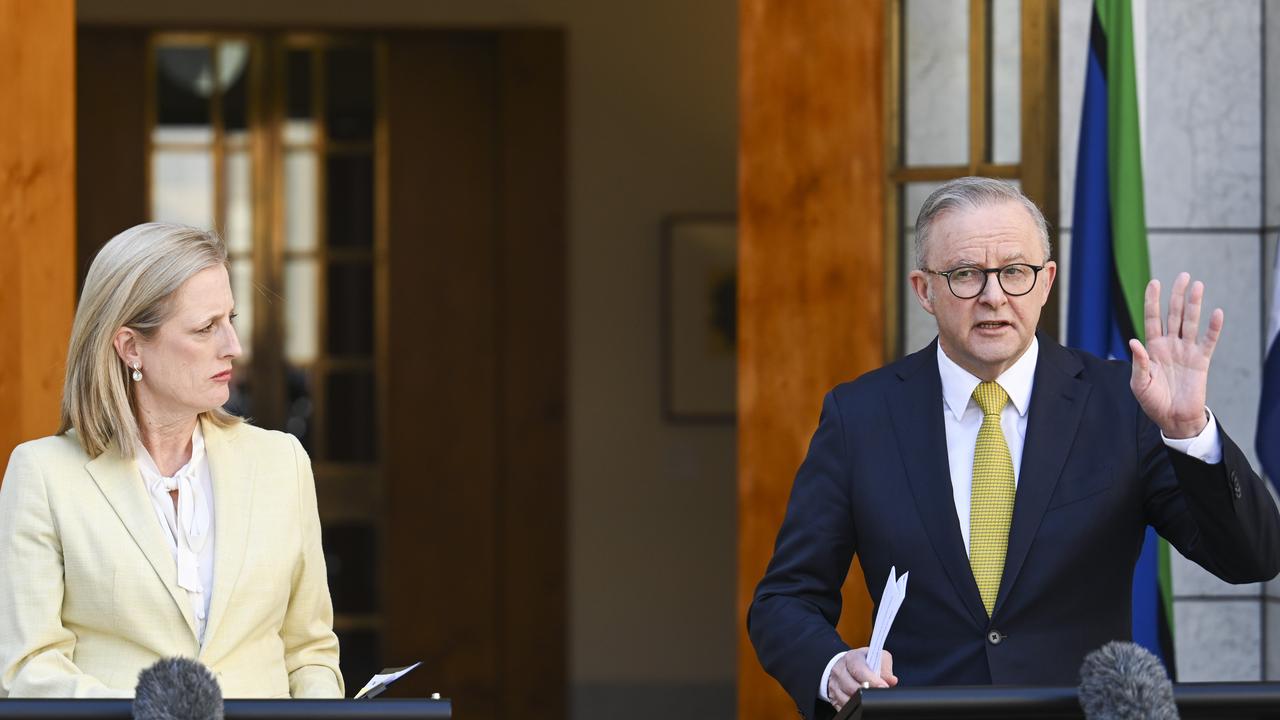China wants world to pay for net zero as India demands $US1 trillion
India and China have called on advanced economies to provide up to $US1 trillion now for developing countries to reduce emissions.
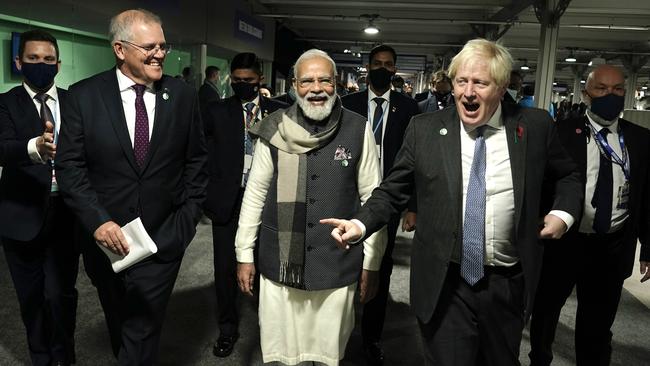
India and China have called on advanced economies to provide up to $US1 trillion ($1.33 trillion) now for developing countries to reduce emissions, rejected 2050 net-zero targets and offered no firm commitments to phase out coal-fired power at the Glasgow climate summit.
The divide between developed and developing nations is again looming as the major obstacle to greater progress at COP26, with Scott Morrison warning that getting the climate shift wrong would impact “those who can afford it least” as he promoted his “technology, not taxes” approach to reducing emissions.
Mr Morrison, who was due to hold talks with Prince Charles ahead of a Commonwealth leaders’ reception on Tuesday, told world leaders successful action on climate change must occur not only “in the developed economies of the North Atlantic but in the developing economies of the Indo-Pacific as well”.
Delivering Australia’s national statement at COP26 in Glasgow, the Prime Minister said global momentum to tackle climate change was building and driving down emissions could be achieved without imposing economy wrecking policies.
Speaking to a high-level group of Australian business leaders, Mr Morrison said he was “far more optimistic” about the future of global warming than the “depressing tone” at COP26. “It is not all doom,” Mr Morrison said after scores of global leaders including British Prime Minister Boris Johnson warned that the world was at “one minute to midnight” if it wanted to “save the planet”.
Mr Johnson, Joe Biden and Emmanuel Macron had hoped to use the UN conference as a launching pad for a new era of ambitious global co-operation on climate change, but failed to win the support of the world’s biggest emitters including India, China, Brazil and Russia. In his keynote speech, Mr Johnson told more than 120 leaders and representatives of 191 countries that humanity had “long since run down the clock” on climate change.
“It’s one minute to midnight on that doomsday clock and we need to act now,” the British Prime Minister said.

The COP26 host, who likened world leaders to James Bond grappling with a “doomsday device”, said he wanted clear COP26 outcomes around the ending of deforestation, the phasing out of coal, increasing electric vehicle take-up and strengthening the financial market’s climate change focus.
After the US President criticised China and Russia for snubbing the G20 and COP26 summits, Chinese President Xi Jinping was allowed to provide a written statement outlining Beijing’s climate change agenda.
In a message without any new commitments, Mr Xi told world leaders to “govern by reality” and boost support for developing nations, referencing an $US100bn-a-year pledge made by advanced economies in 2009 to support the global net-zero transition.
Mr Xi, who submitted a video message to the conference, acknowledged the adverse effects of climate change were increasingly apparent. But he did not provide any detail on how the world’s biggest polluter and coal-fired power consumer would meet its 2060 net-zero target and reduce its peak emissions, which make up more than a quarter of the globe’s total carbon output, by 2030. He said countries should take a pragmatic approach “in accordance with national conditions”, adding that “developed countries must not only do more themselves, but also provide support for developing countries to do better’’.
Mr Xi, who claimed China “resolutely curbs blindly high-energy-consuming and high-emission projects”, said Beijing would pursue a green and low-carbon economic system that could “vigorously develop” renewable energy.
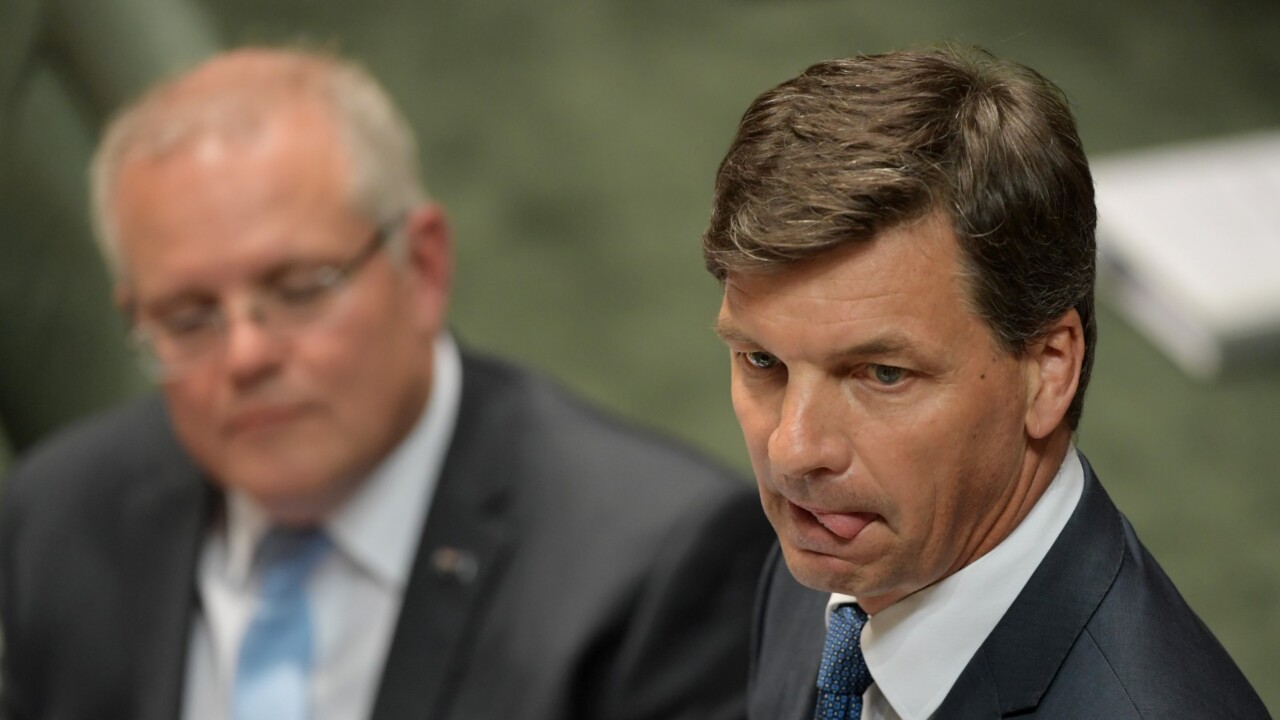
Mr Modi – who led a G20 revolt against British, American and French attempts to insert ambitious targets around coal, methane emissions and net zero goals – also ramped up pressure for advanced countries to scale up their support for developing nations to $1 trillion “as soon as possible”.
Despite his government resisting a net-zero target, Mr Modi shocked COP26 delegates by declaring India would aim to reach the goal by 2070. The 50-year target, which most believe would be difficult for India to achieve unless low-emissions technologies were scalable, would be supported by an accelerated shift to “non-fossil energy” from 2030.
After attending Mr Johnson’s COP26 world leaders’ dinner reception on Monday night, Mr Morrison hosted a breakfast roundtable on his final day in Glasgow with Australian business chiefs including Macquarie Group chief executive Shemara Wikramanayake, Fortescue’s Andrew Forrest, Rio Tinto chair Simon Thompson, Santos chief executive Kevin Gallagher and Sun Cable boss David Griffin.
He said Australia had a “tremendous opportunity.”
“We are passionate that technology is involved, we are absolutely passionate about that,” Mr Morrison said.
“What works has to work in the North Atlantic and it has to work in the Indo-Pacific, the developed countries in the North Atlantic and developing countries in the Indo-Pacific and whether its speaking to Indonesia, Vietnam or particularly India, they understand the challenge and they are looking for the answer to their economies. The world is looking for solutions. I am far more optimistic when I come to these things and sometimes they can have a bit of a depressing tone about doom, about gloom. That’s not my view. It’s not our government view.
“Eighteen months ago we were facing the abyss of a pandemic with no vaccine, and here we are, a vaccine has now been administered to billions around the world.”
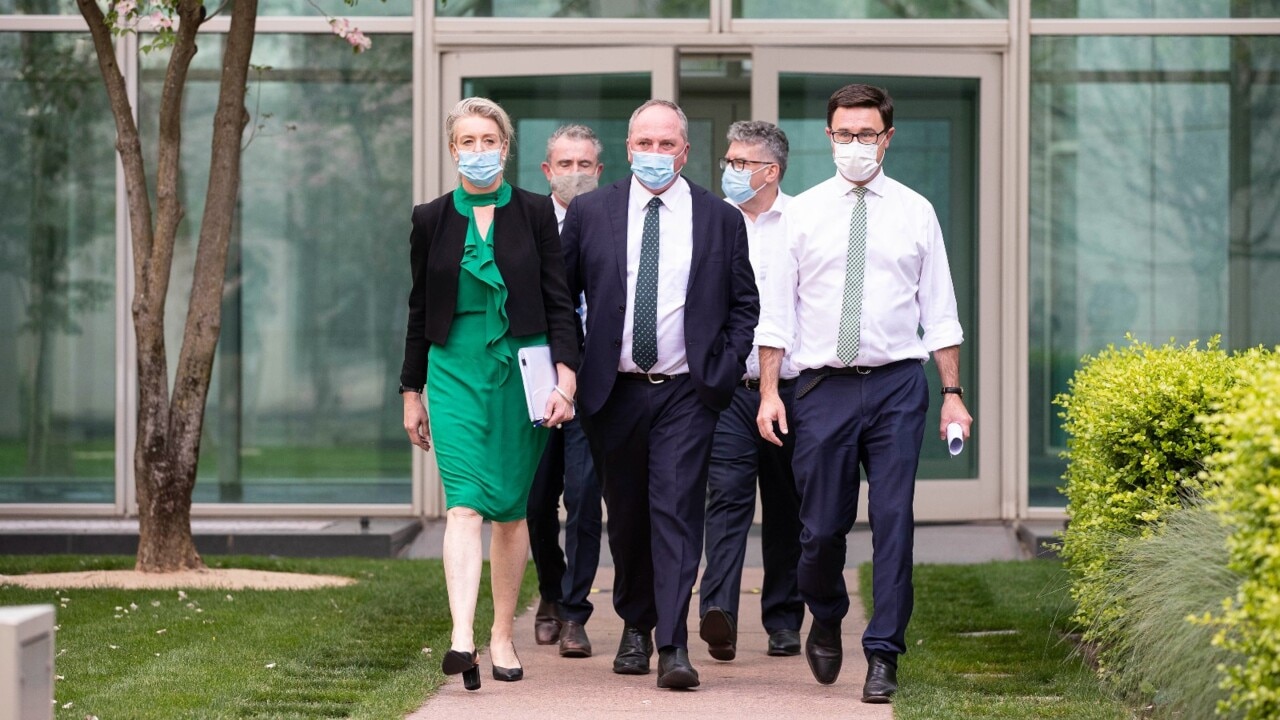
Mr Morrison was expected to meet heads of the International Energy Agency and International Atomic Energy Agency overnight.
In his COP26 speech, Mr Morrison said “cleaner technology solutions must out-compete existing technologies if they are to be successful everywhere, especially in developing economies”.
“Technology will have the answers to a decarbonised economy, particularly over time — and achieve it in a way that does not deny our citizens, especially in developing economies, their livelihoods or the opportunity for a better quality of life,” Mr Morrison said.
Spruiking the government’s target for net-zero emissions by 2050, Mr Morrison said Australia’s success in slashing emissions by more than 20 per cent since 2005 — driven by world-leading take-up of rooftop solar and accelerated deployment of renewables — had not come at an economic cost. “Over the same time, our economy has grown by 45 per cent, proving that economic growth is not at odds with emissions reduction,” he said.
“And by 2030 our nationally determined contribution here at COP26 notes that our emissions will fall by 35 per cent by 2030, far exceeding our Paris commitment. Australia meets and beats our commitments. And we are doubling our initial climate finance commitment for our Pacific family and Southeast Asian partners to $2bn.”

